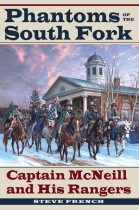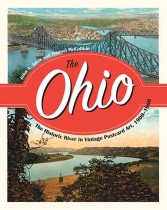Phantoms of the South Fork
Steve French | Filed under: Civil War Era, Civil War Soldiers and Strategies, History, Military History, U.S. History, Understanding Civil War History
At 3 a.m. on February 21, 1865, a band of 65 Confederate horsemen slowly made its way down Greene Street in Cumberland, Maryland. Thinking the riders were disguised Union scouts, the few Union soldiers out that bitterly cold morning paid little attention to them. In the meantime, over 3,500 Yankee soldiers peacefully slept.






